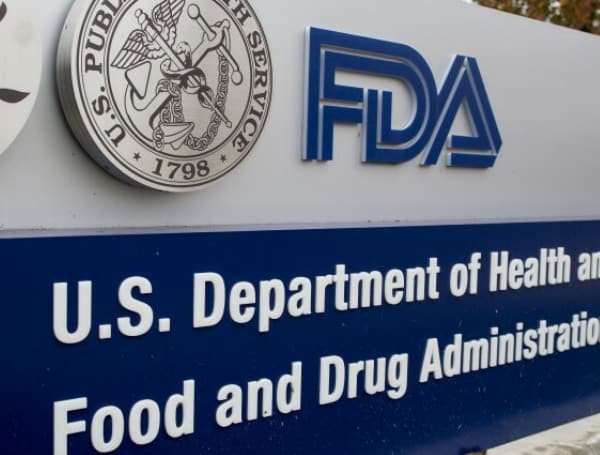The U.S. Food and Drug Administration (FDA) has issued a warning to patients and healthcare professionals regarding the use of unapproved versions of popular GLP-1 receptor agonist drugs like semaglutide (found in Ozempic and Wegovy) and tirzepatide (found in Mounjaro and Zepbound) for weight loss.
The agency emphasizes that these unapproved versions have not undergone rigorous FDA review for safety, effectiveness, and quality, posing significant risks to patients.
The FDA is particularly concerned about compounded versions of these drugs, which are sometimes sought out when FDA-approved options are unavailable or when a patient has a medical need that approved drugs cannot meet.
While compounding can be appropriate in specific circumstances, the FDA stresses that compounded drugs lack the agency’s pre-market review, leaving their safety, effectiveness, and quality unverified.
READ: US Sanctions Iranian Nationals And Entity Linked To Nuclear Weapons Research
Dosing Errors and Adverse Events Spark Concern
The agency has received numerous reports of adverse events linked to compounded GLP-1 drugs, some severe enough to require hospitalization. A significant concern involves dosing errors, with patients mismeasuring and self-administering incorrect doses, and in some instances, healthcare professionals miscalculating dosages.
Furthermore, the FDA has noted adverse event reports potentially linked to patients receiving compounded semaglutide or tirzepatide at doses exceeding those recommended on the labels of FDA-approved drugs. This includes using larger single doses, more frequent administration, or rapid increases in dosage. Reported side effects include serious issues such as nausea, vomiting, diarrhea, abdominal pain, and constipation, leading some individuals to seek medical attention.
The FDA urges healthcare providers to exercise caution when prescribing compounded GLP-1 products, paying close attention to appropriate doses, titration schedules, and dosing instructions for patients. Patients are also encouraged to communicate openly with their healthcare provider or compounder about the correct measurement and administration of these medications.
READ :Dr. Oz Warns Of Another Major Challenge Coming To US Health Care
Retatrutide and Salt Forms Raise Additional Red Flags
The FDA explicitly states that retatrutide, another investigational GLP-1 drug, cannot be legally used in compounding. It is not an ingredient in any FDA-approved drug and has not been established as safe and effective for any medical condition.
Adding to the concerns, the agency has identified that some compounded semaglutide products utilize salt forms of the drug, such as semaglutide sodium and semaglutide acetate. These are different active ingredients than those used in FDA-approved semaglutide medications. The FDA lacks data on whether these salt forms possess the same chemical and pharmacological properties as the approved active ingredient and is unaware of any lawful basis for their use in compounding.
Adverse Event Reports Underestimate the Problem
As of February 28, 2025, the FDA has received over 455 adverse event reports associated with compounded semaglutide and more than 320 reports linked to compounded tirzepatide. However, the agency notes that these numbers likely underestimate the true scope of the problem, as state-licensed pharmacies that are not outsourcing facilities are not federally mandated to report adverse events to the FDA. Many of the reported adverse events mirror those associated with the FDA-approved versions of these drugs.
Counterfeit Products and Illegal Online Sales Compound Risks
The FDA is also actively monitoring and addressing the issue of illegally marketed versions of these drugs, including counterfeit Ozempic found in the U.S. Counterfeit drugs pose a serious threat as they may contain incorrect, insufficient, excessive, or harmful ingredients.
The agency is also cracking down on illegal online sales of semaglutide and tirzepatide, having issued warning letters to distributors of these unapproved products. These illegally marketed drugs may be counterfeit or contain undisclosed and potentially dangerous ingredients. The FDA strongly advises consumers to only purchase prescription medications from state-licensed pharmacies and to be cautious when buying drugs online.
Products Falsely Labeled for Research Purposes
Adding another layer of complexity, the FDA has warned companies illegally selling unapproved drugs containing semaglutide, tirzepatide, or retatrutide that are falsely labeled “for research purposes” or “not for human consumption.”
These products have been sold directly to consumers with dosing instructions, despite their misleading labels. The agency urges consumers to avoid these products due to their unknown quality and potential health risks.
FDA Recommendations for Safe Access to Medications
To ensure patient safety, the FDA recommends the following:
- Obtain prescriptions from a doctor: Discuss your weight loss options with a licensed healthcare provider.
- Fill prescriptions at state-licensed pharmacies: This ensures you receive legitimate medications.
- Utilize FDA’s BeSafeRx campaign: Access resources for safely buying prescription medicines online.
- Talk to your doctor about medication questions: Ensure you understand your treatment plan and potential risks.
The FDA encourages healthcare professionals, patients, and compounders to report any adverse events or quality problems related to these or any medications through the FDA’s MedWatch Adverse Event Reporting program. Reports can be submitted online or via fax at 1-800-FDA-0178.
Please make a small donation to the Tampa Free Press to help sustain independent journalism. Your contribution enables us to continue delivering high-quality, local, and national news coverage.
Connect with us: Follow the Tampa Free Press on Facebook and Twitter for breaking news and updates.
Sign up: Subscribe to our free newsletter for a curated selection of top stories delivered straight to your inbox.

